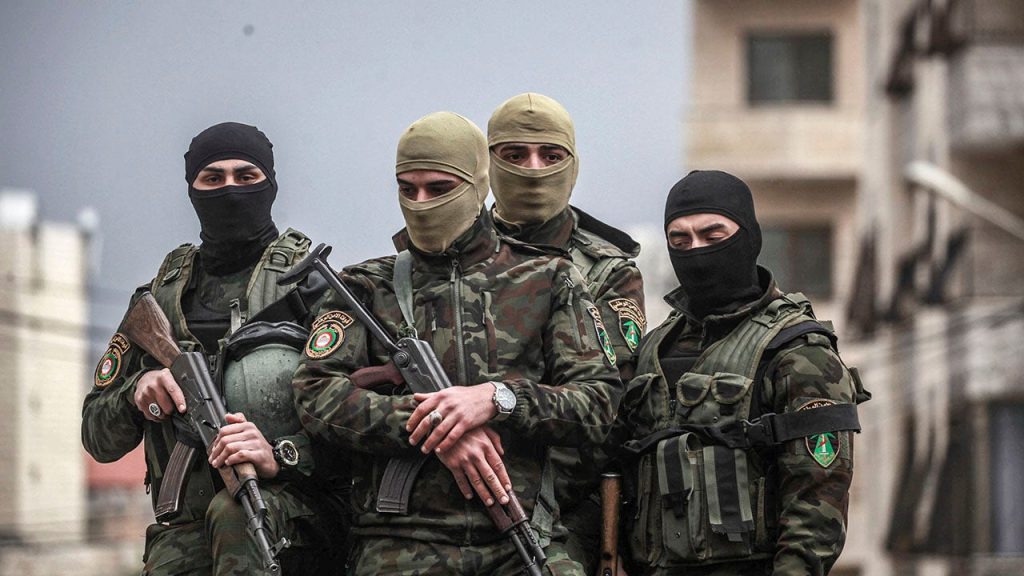The Palestinian Authority (PA), in the aftermath of Hamas’s devastating attack on Israel and Israel’s subsequent counteroffensive, is attempting to reposition itself as the legitimate governing body for the Palestinian territories, including Gaza. Mohammad Hamdan, secretary-general of the PA’s ruling Fatah Party, articulated this ambition in an interview with the New York Post, expressing the PA’s commitment to confronting Hamas’s ideology and severing its ties with external regimes, particularly Iran. Hamdan’s remarks underscore the PA’s perception of a converging interest with the incoming Trump administration and the Israeli government in weakening Iran, believing that this will ultimately dismantle Hamas’s support network and force its remaining elements to integrate into the Palestinian political landscape. This strategy reflects the PA’s long-standing rivalry with Hamas, which culminated in Hamas’s seizure of Gaza in 2006, further exacerbated by the October 2023 attack on Israel.
The PA’s renewed assertiveness is evident in its recent security operations in Jenin, a West Bank city long considered a Hamas stronghold. These operations, involving armed clashes with extremist groups, have resulted in casualties on both sides, highlighting the PA’s determination to reassert its authority and dismantle Hamas’s infrastructure. This proactive approach is in stark contrast to the PA’s previous limited presence in Jenin, demonstrating a shift in strategy likely motivated by the perceived opportunity to reclaim control of Gaza once the current conflict subsides. The PA’s actions, while focused on internal security, are framed within a broader geopolitical context, particularly the anticipated policies of the incoming Trump administration.
Hamdan’s prediction that Trump will “destroy Iran” reflects the PA’s belief that a weakened Iran will cripple Hamas, ultimately forcing its remnants to abandon their extremist ideology and embrace Palestinian nationalism. This perspective reveals the PA’s calculation that aligning with the U.S. and Israel against a common enemy, Iran, will serve its long-term strategic goals. Simultaneously, the PA maintains its commitment to a two-state solution and the establishment of a Palestinian state, while condemning Hamas’s rejection of international legitimacy and UN resolutions. This nuanced stance allows the PA to present itself as a responsible actor on the international stage, capable of engaging with both the U.S. and Israel while combating extremism within its own territory.
Despite this seemingly cooperative posture, the PA’s relationship with both the U.S. and Israel is complex and fraught with historical tensions. Hamdan, while expressing support for realistic relations with the U.S., also criticizes American foreign policy in the Middle East, blaming it for the rise of extremist groups. He cites U.S. involvement in Syria and Afghanistan as examples of policies that have inadvertently fueled Islamic extremism. This critique reflects the PA’s skepticism of U.S. intentions and its concern about the potential unintended consequences of American interventionism in the region.
Similarly, while the PA leaders interviewed by the Post affirmed their support for Israel’s right to exist, they also condemned Israel’s continued settlement expansion in the West Bank, a long-standing point of contention that hinders progress towards a peaceful resolution. This duality—acknowledging Israel’s existence while condemning its policies—underscores the PA’s delicate balancing act as it seeks to navigate the complex geopolitical landscape and advance its own interests. The PA’s condemnation of settlements also resonates with international criticism of Israeli settlement activity, further solidifying the PA’s position as a proponent of a negotiated two-state solution.
The PA’s path to regaining control of Gaza is not without obstacles. Israeli officials, while acknowledging the PA’s potential role in post-war Gaza governance, have emphasized the need for the PA to address issues of corruption and its alleged funding of terrorism against Israeli settlers in the West Bank. This conditional support reflects Israel’s long-standing concerns about the PA’s ability to govern effectively and maintain security. However, the unprecedented nature of the current situation, coupled with the decimation of Hamas in Gaza, presents a unique opportunity for the PA to reassert its authority and assume a leading role in shaping the future of the Palestinian territories. The PA’s success will ultimately depend on its ability to address Israeli concerns, effectively govern, and navigate the complexities of its relationship with both the U.S. and Israel. This challenging endeavor requires a delicate balance of diplomacy, security operations, and internal reforms to establish the PA as a credible and sustainable governing authority.

